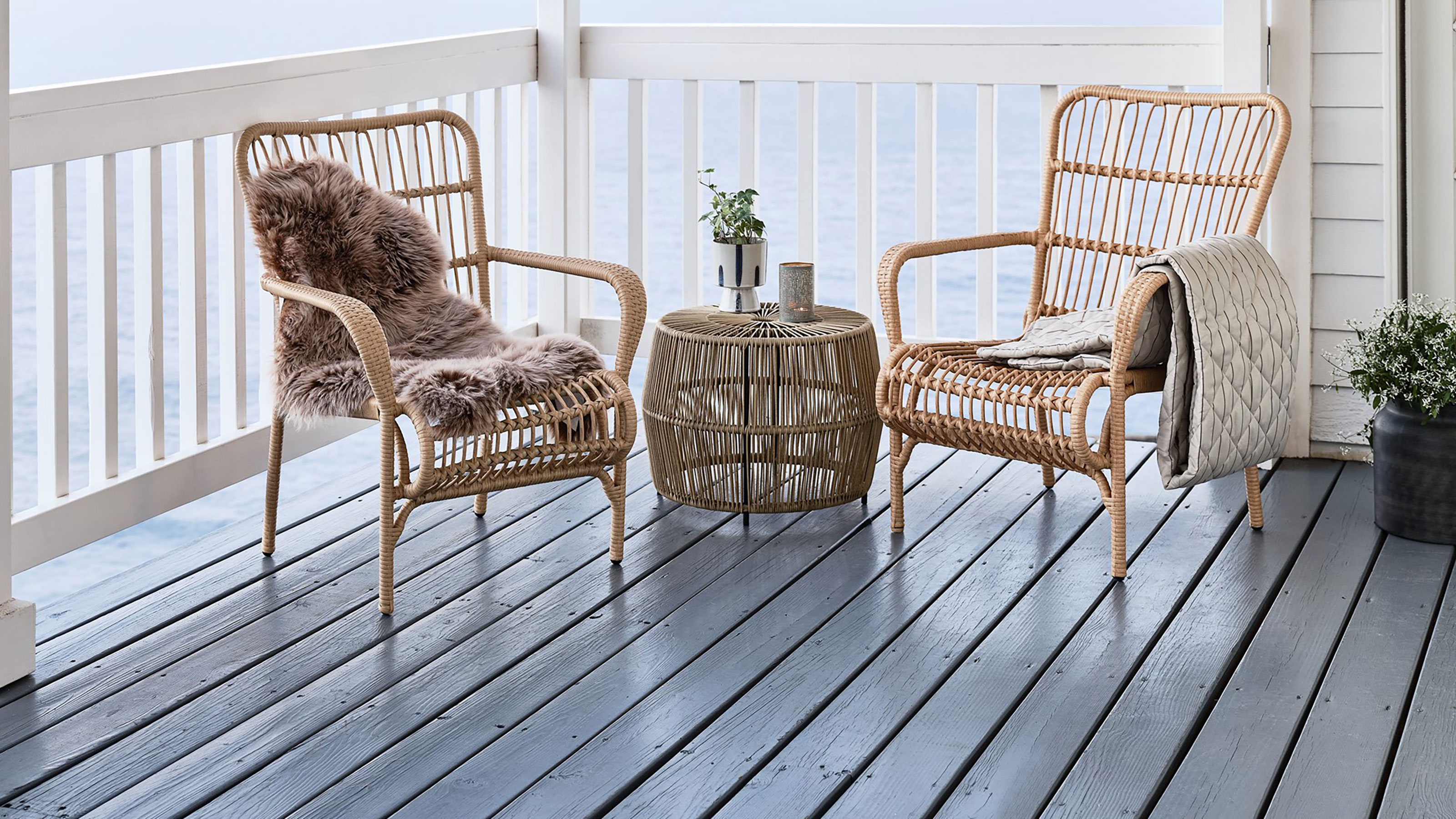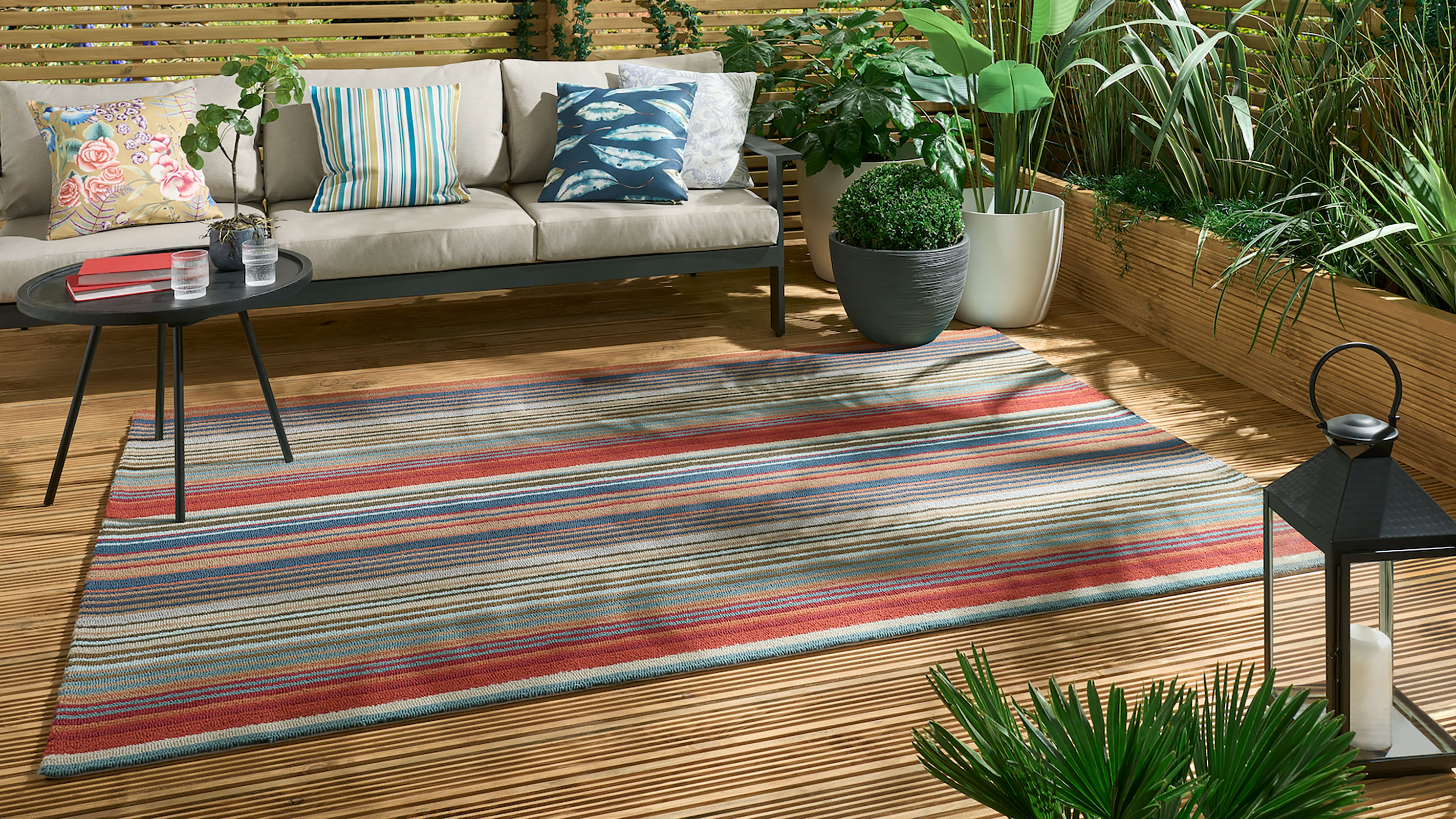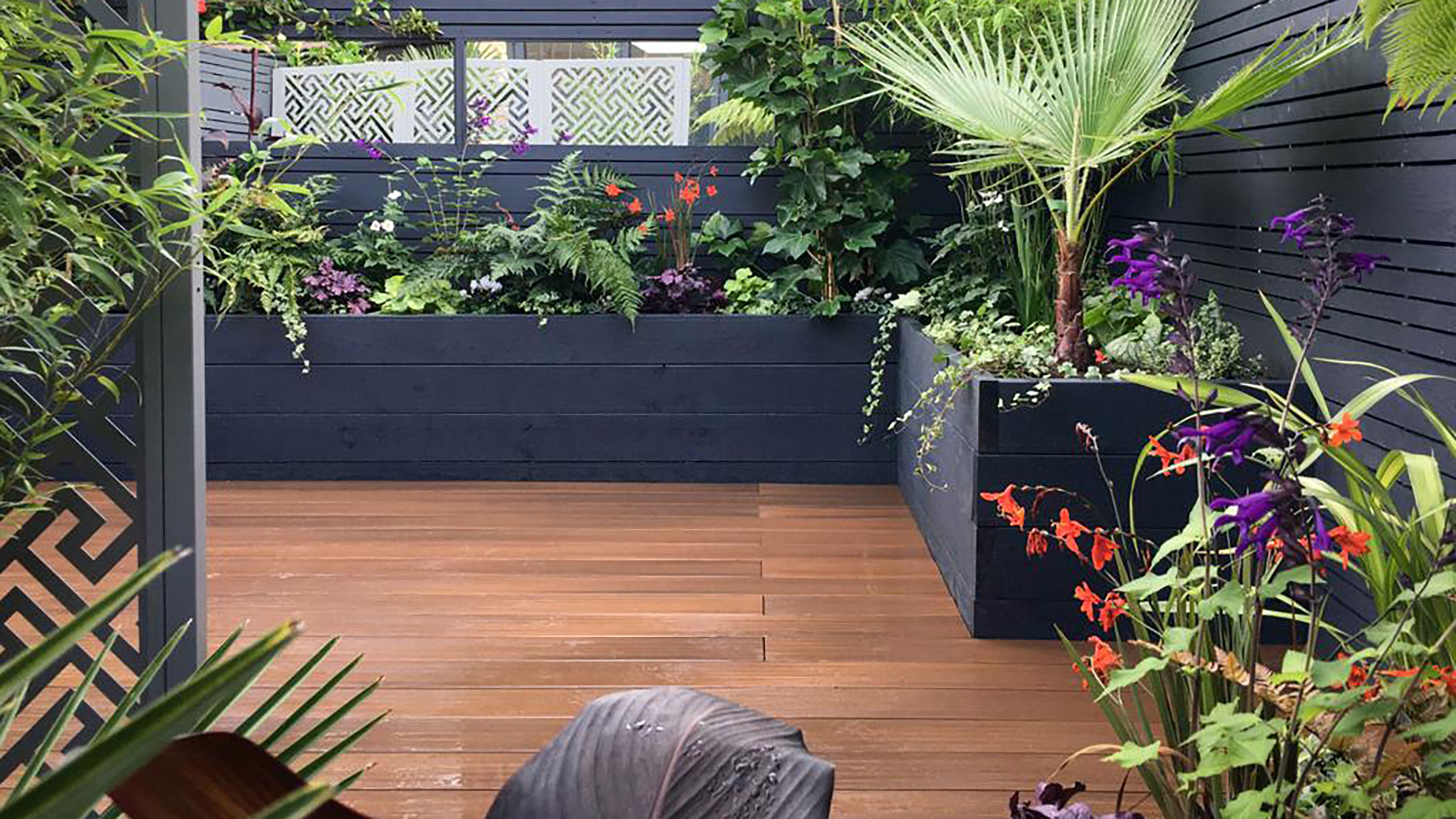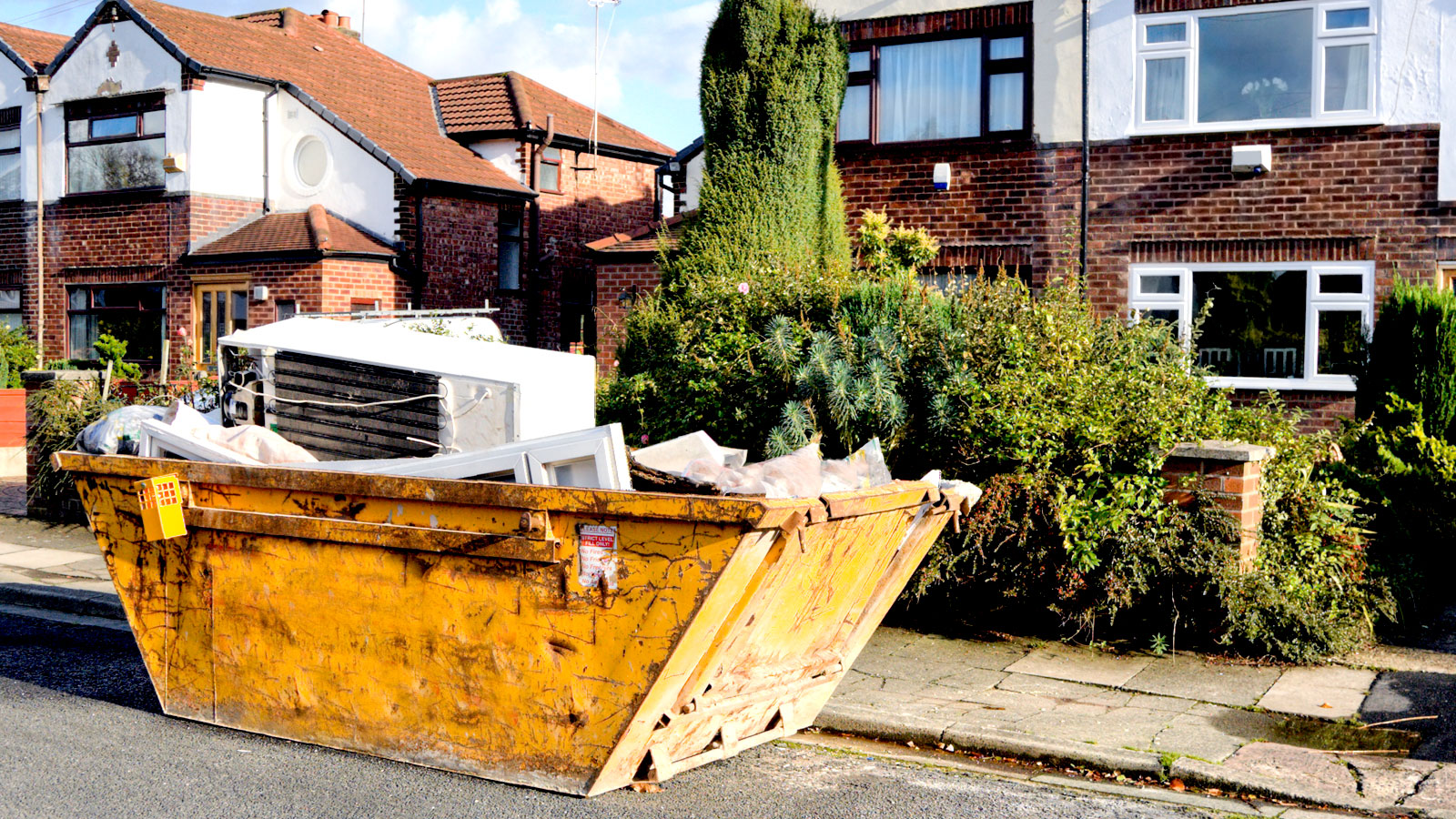How long does decking last and how can you prolong its life?
Just how long does decking last? Here, we take a look at what to expect from your new deck — plus we offer some tips on how to look after it to keeping it looking good for longer

Bring your dream home to life with expert advice, how to guides and design inspiration. Sign up for our newsletter and get two free tickets to a Homebuilding & Renovating Show near you.
You are now subscribed
Your newsletter sign-up was successful
Exactly how long does decking last? Are some materials better suited to being used for decking than others? How can you stretch the life of your decking? We have the answers to all these questions and more.
Your decking ideas will form a large part of not only how your garden looks, but can also completely transform how you use it. With the right treatment, a deck can provide an al fresco dining spot, a relaxing retreat to watch the sun set or somewhere that can extend your indoor living spaces when the weather allows. However, being constantly exposed to the elements means that the materials you choose to build your decking from need to be capable of withstanding everything the UK climate throws its way.
In this guide, we ask the experts how long decking can be expected to last, which materials are the most durable option and how you can look after your new deck to ensure it brings you enjoyment for many years to come.
How long does decking last?
In order to get the very most out of your new deck and to keep it looking as good as new for as long as possible, there are several steps you will need to take.
"Decking should be periodically cleaned from a safety perspective but also to help with longevity, as a build up of moss and lichen can cause it to become slippery and dangerous," says Leigh Barnes of Jacksons Fencing. If you are wondering how to clean decking, Leigh has several tips.
"We recommend a gentle washing with slightly soapy water and sponge to remove dirt and cobwebs. A very light abrasive such as a nylon kitchen scourer can be used along the grain. Do not rub against the grain as it is likely to leave marks. A very light/distant cold water pressure washer can be used, but care must be taken not to damage the surface of the timber. The decking will lighten in colour when moss has effectively been removed."
"To maximise the lifespan of any decking material, regular maintenance is essential, as is avoiding harsh cleaning chemicals or ice removers, and minimising exposure to extreme heat or cold can also help to prolong the lifespan of decking," says Allan Jeffrey.
Bring your dream home to life with expert advice, how to guides and design inspiration. Sign up for our newsletter and get two free tickets to a Homebuilding & Renovating Show near you.
So, you know how to look after your decking, but if you are still at the stage of deciding between decking or a paved patio and are worried about the longevity of decking, what do you need to know?
How long does wooden decking last?
When it coms to how long timber decking can be expected to last, according to the experts, it all comes down to its quality and how well it has been treated.
"Wood decking tends to last between 10 and 20 years, or longer depending on the upkeep and conditions," says Allan Jeffrey at Ultra Decking. "Sealing your decking well, and regular maintenance will help it last longer." Painting decking can also help extend its life.
"Good quality timber decking that has been properly treated can last for 25 years and longer," says Leigh Barnes. "It’s essential that you use timber that has been treated correctly for in-ground contact when building a deck."
It isn't just the visible elements of the decking you need to think about though. "Decking posts and joists should be more heavily treated with a quality timber treatment, as these are going to be touching the ground and therefore more susceptible to rot and insect attack," points out Leigh Barnes. "The posts and joists that make up the foundations of the deck are integral to the longevity, as if even one post or joist fails, the integrity of the whole deck could be compromised.
"Look out for a long lifetime guarantee as this will ensure the manufacturer has treated the timber correctly."

Which wood is best for decking?
If you have your heart set on a timber deck you will probably be wondering which is the best wood for decking.
"High quality pressure treated softwood is the best, most affordable type of wood for timber decking," advises Leigh Barnes. "It’s versatile and strong, and if treated correctly will last just as long as other types of wood and even plastic decking."
"Hardwood decking is much more durable than softwood decking," say those in the know at Ultra Decking. "However, unlike softwoods, they are much rarer and come from slow-growing trees. Because of this, they are generally more expensive than softwoods."
"Grooved timber decking will offer the most slip resistance although there are also options to add fixed lines of grit aggregate in high footfall areas to help increase grip," says Leigh Barnes. "Decking boards should be installed with the grooves running in the opposite direction to the most frequent way you walk over it."
How long does composite decking last?
If it is composite decking ideas that you are most interested in then you will be pleased to hear that this is a product that has a very impressive lifespan.
"Composite decking, made from a combination of wood fibres and plastic, can last significantly longer, with an average lifespan of 25 to 30 years, because it is less likely to rot or suffer mould and mildew," says Allan Jeffrey.

How can you extend the life of your decking?
There are plenty of ways to ensure that your decking remains looking great and performing well for many years to come. Some methods relate to maintenance while others rely on sound installation techniques.
"When you lay your decking, accounting for expansion and contraction is important for improving the longevity of your decking, particularly in unpredictable British weather," says Allan Jeffery. "Another thing, which is less obvious, is taking care when moving furniture around your deck, as scratches can allow pockets of moisture and mildew to build."
Other decking mistakes that can affect its longevity include:
- Laying boards in the wrong direction
- Failing to seal the deck after installation
- Buying poor quality screws
- Using poor quality posts and joists for the frame
- Forgetting to regularly clean the deck of moss, lichen and dirt
Natasha was Homebuilding & Renovating’s Associate Content Editor and was a member of the Homebuilding team for over two decades. In her role on Homebuilding & Renovating she imparted her knowledge on a wide range of renovation topics, from window condensation to renovating bathrooms, to removing walls and adding an extension. She continues to write for Homebuilding on these topics, and more. An experienced journalist and renovation expert, she also writes for a number of other homes titles, including Homes & Gardens and Ideal Homes. Over the years Natasha has renovated and carried out a side extension to a Victorian terrace. She is currently living in the rural Edwardian cottage she renovated and extended on a largely DIY basis, living on site for the duration of the project.

